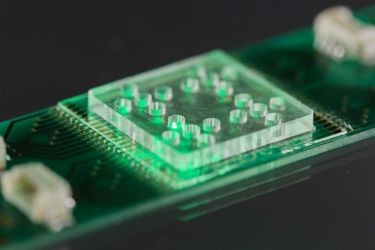Because existing pathogen diagnostic methods are time consuming and costly, a team of scientists from the Leibniz Institute of Photonics Technology (Leibniz-IPHT), the University of Jena Hospital's Sepology Control and Care Center, and Friedrich University A laboratory chip system was developed that combines Raman spectroscopy with microfluidic sample processing.

Project manager Ute Neugebauer said that through the system, researchers can clearly identify bacterial strains and their resistance in less than three hours.
The standard practice for the diagnosis of infectious diseases takes up to 72 hours to obtain reliable results, because the pathogens in the patient samples are too small to be tested if they are not tested in time-consuming dishes. Michael Bauer, an anesthesiology and intensive care clinic at the University Hospital of Jena, explains that this is a treatment for serious infections (such as sepsis); time is a crucial factor in this treatment, therefore, intensive care Physicians often have to blindly apply broad-spectrum antibiotics because they can neither analyze pathogens nor analyze their potential resistance.
Therefore, the research team's approach provides a faster diagnosis for the industry and is the basis for reliable treatment. Neugebauer, who works at Leibniz-IPHT and Jena University Hospital, points out that tiny electrodes fixed on the surface of a stamp-only chip can lock bacteria in very small areas. Neugebauer explained that the scientists then applied various concentrations of various antibiotics to the locked bacteria and examined them by Raman spectroscopy, including irradiating the pathogen with a laser and then evaluating the scatter spectrum.
JürgenPopp, director of Leibniz-IPHT and director of the Institute of Physical Chemistry at the University of Jena, Germany, said that two hours later, the researchers were able to detect significant changes in the Raman spectrum and to determine whether the strain was resistant or sensitive. At the same time, information on the concentration of antibiotics required to inhibit bacterial growth can be obtained.
Researchers are currently researching and developing platforms that can be used in hospitals, and hope to further develop them into a box-based rapid test system that allows general practitioners to quickly and easily identify antibiotic resistance. In this way, the doctor will be able to provide the best treatment for the patient.
GMP ATS Injection, Tetanus Antitoxin, Tetanus Toxoid ,Tetanus Antitoxin Injection, Antitetanus, Refined Tetanus Antitoxinsupplier in China
Tetanus Antitoxin,Tetanus Toxoid,Tetanus Antitoxin Injection,Antitetanus&Refined Tetanus Antitoxin
FOSHAN PHARMA CO., LTD. , https://www.fspharmamedicine.com